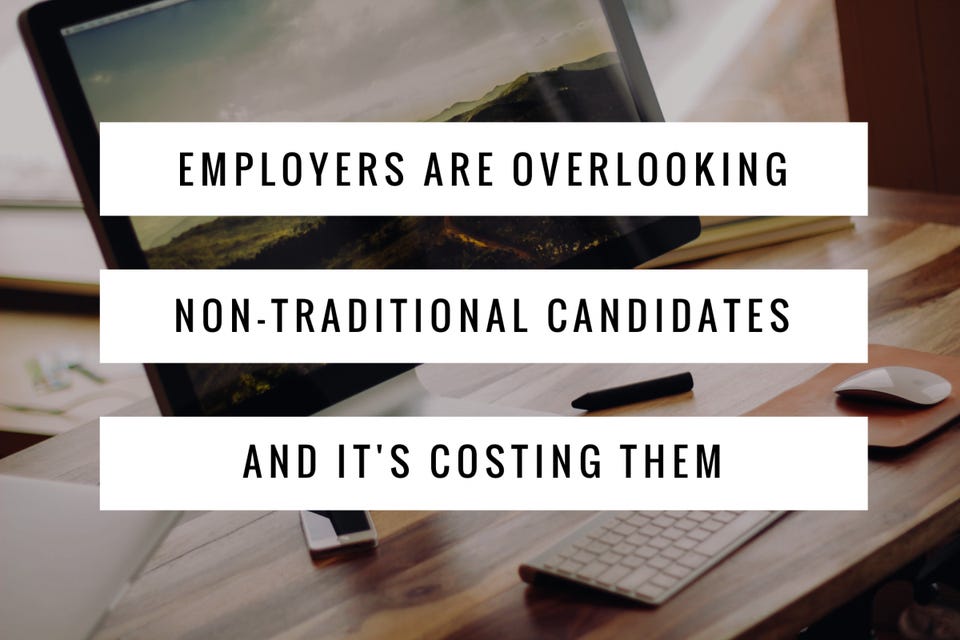Recruiting tools and processes may fail to consider workers without a four-year degree, panelists said during a June 28 joint EEOC and OFCCP webinar.

Ryan GoldenSenior Reporter
Despite signs that employers are willing to prioritize skills over educational attainment when recruiting, candidates with nontraditional work backgrounds continue to be overlooked, according to panelists at a virtual event hosted Tuesday by the U.S. Equal Employment Opportunity Commission and Office of Federal Contract Compliance Programs.
A general trend over the past 20 years has seen businesses employ four-year degree requirements in their job descriptions, narrowing the field of potential candidates despite “hundreds of thousands of people” performing such jobs without a Bachelor’s degree, said Byron Auguste, CEO and co-founder of the nonprofit Opportunity@Work.
Auguste and other panelists spoke about the need for employers to engage job candidates who are skilled through alternative routes, or STARs. These candidates, Auguste said, often are hindered by their backgrounds in pursuing advancements or face other barriers in the recruitment process even as less qualified, traditional candidates are favored.
“People with advanced degrees are given much deeper roles that they may not be a fit for,” Auguste said. “This is a big problem for STARs, but it’s a bigger problem for [businesses] and employers.”
A complete rebuild
Resetting degree requirements for job posts is a strategy that predates the pandemic. A 2022 report by the Burning Glass Institute found that some 46% of middle-skill occupations and 31% of high-skill occupations saw degree requirements reset between 2017 and 2019. More recently, Maryland’s state government dropped four-year degree requirements for thousands of roles, and the push to hire for skills over degrees even received a shoutout at the 2022 State of the Union address.
But employers seeking to expand opportunities to STARs may need to consider making more fundamental changes to the way they hire. That could mean a full reset of all positions, from top to bottom.
That is the approach taken by one healthcare industry employer that partnered with OneTen, an executive coalition that focuses on closing opportunity gaps for Black talent in the U.S.
Panelist Maurice Jones, OneTen’s CEO, said the employer initially sought to fill only a segment of roles, but after a period of just a few months, the company rebuilt all of its positions using what Jones called a “skills-first perspective.” In all, the company redesigned nearly 3,000 jobs.
“That is what we’re looking for,” Jones said, noting the role that a central vision from leadership played in the effort. “It took the senior C-suite folks, hiring managers and people managers to say, ‘You know what? We should have been doing this years ago.’”
Organizations already may have internal STARs who could benefit from clearer paths to advancement, Auguste said. Some barriers may be ingrained into pay structures and other facets of HR aside from the initial sourcing stage. For example, Auguste noted he has seen cases in which an employment contract states that an employer will pay less for someone who does not hold a college degree.
“Companies are putting in a lot of barriers that they don’t need at all,” he said, adding that employers may want to create and expand internship and apprenticeship models for STARs.
Screening and sourcing
Employers can broaden their reach in new ways thanks to the increased adoption of flexible work. Jones gave the example of a company based in the western U.S. that sought to open more opportunities for Black talent. Seeing a lack of such talent locally, the company decided to transition more of its jobs to remote status, allowing it to recruit nationwide, he said.
For other organizations, the problem is not so much the availability of talent, but how that talent is screened. “You can’t see what you’re missing,” Auguste said. “Once you remove those barriers, now you can start to see.”
Human recruiters may insert their biases into the process by defaulting to candidates with traditional credentials like a four-year degree. Even firms that have decided to eliminate four-year degree requirements can still fall into the trap of prioritizing candidates with those degrees, Jones said, citing another example of an employer OneTen worked with. “That was because of a bias, a mindset,” Jones said. “A four-year degree was the gold standard of telling them that this person can learn. It was a real, flawed mindset with respect to that particular credential.”
But most companies don’t have a plan for exclusion, Auguste said. They may use hiring technology platforms that screen out non-traditional candidates by default. Such hurdles may require employers to check with their providers or otherwise perform additional analysis of screened candidates on the back end, said Emily Dickens, chief of staff, head of government affairs and corporate secretary for the Society for Human Resource Management.
On the candidate side, Auguste said underrepresented groups of candidates “are more likely to read your job descriptions and say, ‘I don’t have that,’” which, he noted, is another reason why employers should “take the job description aspect of this seriously.”
HR also may need to address hesitancy on the part of organizations to hire STARs. “If someone comes with 12 different reasons [not to hire STARs], there’s frankly something wrong,” Auguste said. As employers welcome more non-traditional candidates into their workforces and set them up to succeed, that risk aversion decreases over time, he added; “the successes pile up.”
‘These are all the things businesses say they need’
The pandemic has seen a number of employees making career changes from front-line roles in sectors such as the care economy and call centers to those in information technology, cybersecurity and other high-demand areas, Auguste said. That movement, he noted, is a testament to the resiliency and curiosity of these workers.
“When you look at what essential workers have done in the pandemic … believe your eyes,” Auguste said. “That’s skills. That’s resourcefulness. These are all the things that businesses say they need.”
However, panelists emphasized the need for alignment between HR executives, people managers and the C-suite. “It has to come from the top,” Dickens said. “The CEO has to direct and say to their partner in HR that every job description should not have [a degree] requirement.”
Such an initiative also requires a commitment to building a skills-first culture, Jones said, which will take some time for organizations to build.
“This is not a 10-month or a one-year journey,” he said. “This is something that you need to commit to for a decade at least.”






